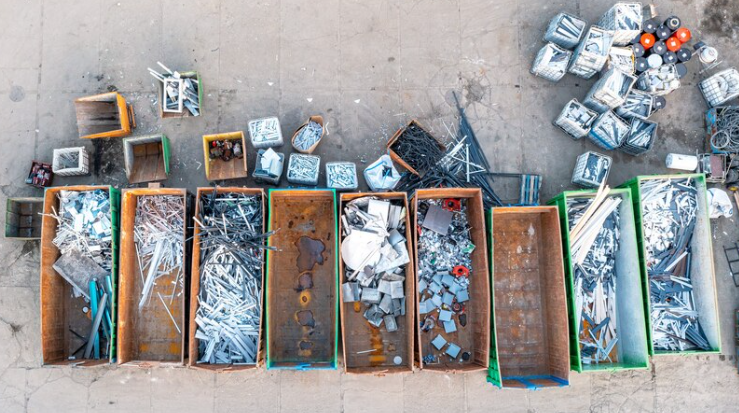Introduction:
In an age characterized by environmental challenges and resource scarcity, the practice of scrap metal collection emerges as a crucial means to protect our planet and preserve its natural resources. Metal is an essential component of countless industries, and its demand continues to grow. However, traditional metal extraction processes often lead to environmental degradation, greenhouse gas emissions, and the depletion of finite resources. By recognizing the significance of scrap metal collection, we can embrace a more sustainable path towards responsible resource management. In this comprehensive article, we will explore eight compelling reasons why Scrap Metal Collection Manchester is vital to safeguarding the health of our planet and securing a brighter future for generations to come.
Conservation of Natural Resources:
The extraction of metals from raw ores involves extensive mining operations, which often result in habitat destruction, soil erosion, and water pollution. By recycling and reusing metal through scrap metal collection, we significantly reduce the need for new metal extraction, thereby preserving finite natural resources like iron, aluminum, copper, and steel. This conservation effort ensures that these valuable resources are available for future generations and minimizes the environmental impact of mining activities.
Reduction of Energy Consumption:
Producing metals from raw materials requires substantial energy inputs, contributing to greenhouse gas emissions and climate change. Scrap metal collection offers a more energy-efficient alternative. Recycling metal consumes significantly less energy compared to extracting and processing new ores, resulting in reduced carbon emissions and a lighter ecological footprint. By embracing scrap metal collection, we contribute to a more sustainable energy landscape and help mitigate the adverse effects of climate change.
Mitigation of Greenhouse Gas Emissions:
The mining and refining of metals release substantial amounts of greenhouse gases into the atmosphere, exacerbating global warming and climate change. Recycling metal through scrap metal collection significantly reduces these emissions. In fact, recycling aluminium, for instance, can save up to 95% of the energy required to produce the same amount of aluminium from raw ore. By prioritizing scrap metal collection, we contribute to global efforts to combat climate change and create a cleaner, more sustainable world.
Waste Reduction:
Scrap metal collection plays a pivotal role in reducing waste and preventing valuable materials from ending up in landfills. When metals are disposed of improperly, they can take centuries to decompose, releasing harmful substances into the environment. By recycling and reusing metal through scrap metal collection, we minimize landfill waste, alleviate the burden on waste management systems, and prevent potential environmental pollution.
Promotion of Circular Economy:
Scrap metal collection aligns seamlessly with the principles of the circular economy. Rather than following the traditional linear model of “take, make, dispose,” the circular economy emphasizes continual reuse, recycling, and reintroduction of materials into production cycles. By participating in scrap metal collection, we facilitate the circular flow of metal resources, minimizing waste and supporting a regenerative economic model.
Conservation of Land and Ecosystems:
Mining operations for metal extraction often encroach upon natural habitats, causing irreversible damage to ecosystems and biodiversity. By recycling metal through scrap metal collection, we reduce the demand for new mining sites, preserving valuable land and protecting delicate ecosystems. This conservation effort ensures that both humans and wildlife can continue to thrive in healthy, balanced environments.
Economic Benefits:
Scrap metal collection stimulates economic growth by creating employment opportunities and driving investment in recycling infrastructure. The recycling industry offers jobs to a diverse workforce involved in collecting, sorting, processing, and selling scrap metal. Moreover, the economic benefits extend beyond the recycling sector, as a robust recycling industry bolsters other industries reliant on recycled metal, such as manufacturing and construction.
Environmental Health and Human Well-Being:
Recycling metal through scrap metal collection leads to a cleaner environment and improved human health. By reducing pollution and minimizing the release of toxic substances, we safeguard air and water quality, protecting both nature and human populations from the harmful effects of environmental degradation.
Scrap metal collection is not just a practical solution for waste management; it represents an essential strategy to protect our planet and preserve its precious resources. By conserving natural resources, reducing energy consumption, mitigating greenhouse gas emissions, and promoting a circular economy, scrap metal collection plays a vital role in creating a sustainable and resilient future. Embracing this practice benefits the environment, supports economic growth, and fosters a healthier, greener planet for current and future generations. By recognizing the significance of scrap metal collection and acting upon it, we take a significant step towards ensuring the well-being of our planet Earth.




